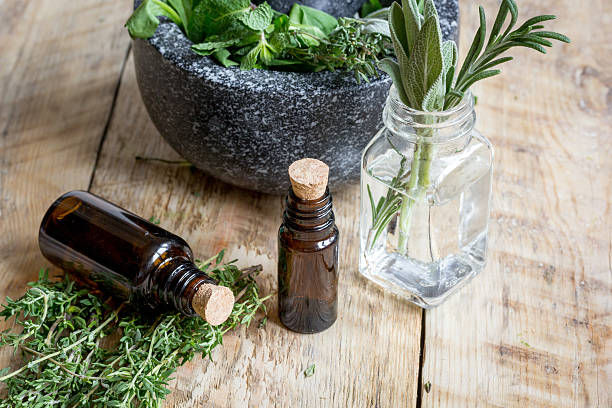Embracing Proactive Health Care: Reclaiming Our Wellness
- Casey Zeck
- Oct 27, 2024
- 4 min read
Updated: Oct 30, 2024
In today’s fast-paced world, the notion of proactive health care has never been more critical. With the pervasive influence of modern medicine, many people believe that their health is primarily determined by genetics, leading to the misconception that lifestyle choices are irrelevant. However, a closer examination reveals that our environment and lifestyle significantly impact our well-being, and proactive health care can empower us to take charge of our health.
The Legacy of Modern Medicine and Its Impacts
The modern medical landscape has often overshadowed the principles of holistic health. The Rockefeller family's influence in the early 20th century significantly shaped this landscape. Their interests in pharmaceuticals, derived largely from petroleum, led to a systematic campaign against natural medicine. By promoting a model that emphasized chemical solutions over natural remedies, they effectively painted holistic practices as “quackery.”
This shift created a paradigm where medical schools and textbooks began to focus on matching pills to symptoms rather than treating the body as whole or addressing the root causes of illness. Consequently, health care became less about healing and more about creating lifelong customers for pharmaceutical companies. This emphasis on symptom management over holistic healing contributed to a culture of dependency on medications rather than fostering true health.
The Historical Wisdom of Natural Remedies
For centuries, our ancestors relied on natural remedies and herbs to maintain their health. From the use of willow bark as a pain reliever—later synthesized into aspirin—to the antibacterial properties of honey and garlic, nature has provided us with a wealth of healing resources. Ancient practices such as Ayurveda and Traditional Chinese Medicine have utilized herbs, dietary changes, and lifestyle adjustments for millennia to promote health and prevent disease.
In contrast, society has increasingly handed over the responsibility for health to the convenience of modern solutions, often neglecting the importance of understanding our own bodies. This shift has resulted in a disconnect from the natural methods that have historically supported health and well-being.
The Impact of Environment and Lifestyle Choices
Today, we must recognize that our environment and lifestyle choices profoundly influence our health. Simple changes can have a significant impact on our physical, mental, and emotional well-being. Engaging in daily movement, for example, can enhance cardiovascular health, improve mood, and bolster immune function. Whole food nutrition—favoring fresh, unprocessed foods over man-made, chemically laden products—offers vital nutrients that fuel our bodies and minds.
Processed foods, often high in sugar, unhealthy fats, and artificial ingredients, can disrupt hormone balance. Hormones act as messengers, regulating everything from mood to metabolism. When we consume toxic ingredients, we risk creating a cascade of hormonal imbalances that can lead to a host of health issues, including obesity, anxiety, and chronic disease.
Food is information. What we choose to eat directly impacts our body's function and health. Likewise, the products we apply to our skin and use in our homes—many of which contain harmful chemicals—also play a significant role in our overall health. By opting for natural, non-toxic alternatives, we can support our body's inherent ability to thrive.
Reclaiming Responsibility for Our Health
As a natural health practitioner for nearly a decade, I have witnessed a growing movement toward reclaiming health through education and awareness. It brings me immense joy to see individuals taking proactive steps to embrace a more natural lifestyle. Whether it’s someone choosing to incorporate more fruits and vegetables into their diet, finding joy in daily movement, or choosing to eliminate toxic household products, each small change contributes to a greater sense of well-being.
This journey often begins with a realization: we are not merely passive recipients of health care but active participants in our well-being. Taking accountability for our health is empowering. It involves understanding our bodies, recognizing the impact of our choices, and making informed decisions that foster a healthier lifestyle.
Simple Steps Toward Proactive Health
1. Daily Movement: Incorporate activities you enjoy, whether it’s walking, yoga, dancing, or gardening. Aim for at least 30 minutes of movement each day to support physical and mental health.
2. Whole Food Nutrition: Focus on whole, unprocessed foods. Fill your plate with colorful fruits, vegetables, whole grains, proteins, and healthy fats. Consider cooking at home to control ingredients and portions.
3. Natural Products: Transition to all-natural personal care and cleaning products. Research brands that prioritize non-toxic ingredients or try making your own.
4. Mindfulness Practices: Incorporate stress-reducing practices into your routine, such as meditation, deep breathing exercises, or journaling. Mental health is a crucial component of overall well-being.
5. Community and Support: Engage with like-minded individuals who share your commitment to holistic health. Joining community groups or online forums can provide motivation and support.
Embracing proactive health care is a powerful way to reclaim our well-being. By understanding the historical context of modern medicine and recognizing the impact of our environment and lifestyle choices, we can move toward a healthier future.
As we begin to prioritize natural remedies and holistic approaches, we open the door to a wealth of healing options that have served humanity for centuries. The journey may require effort and commitment, but the rewards—a vibrant, healthy life—are well worth it. Let us not hand over our health for the sake of convenience; instead, let’s engage with our bodies, take accountability, and embrace a path of proactive health care that honors our innate ability to heal.
Check out some of my favorite clean brands and natural products here.


Comentarios